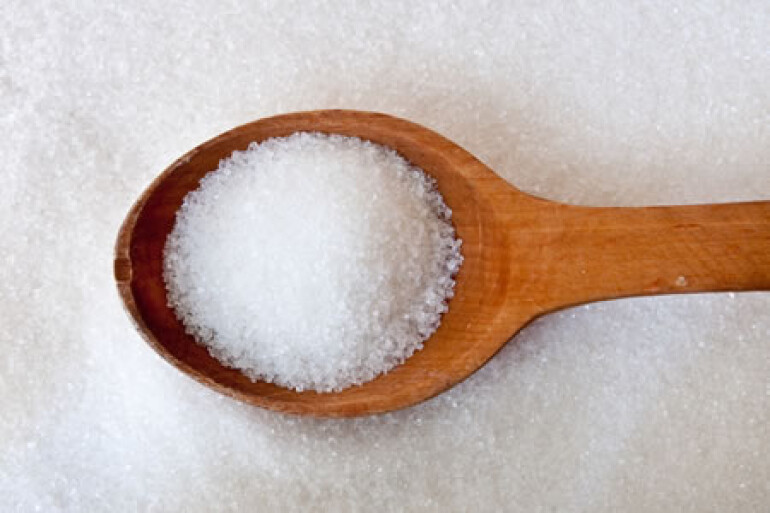Sugar is the most successful food additive ever. It has no nutritional value and not needed for the human body to function. Sugar is made up of glucose and fructose and it is the fructose that makes it sweet and ultimately the molecule we look for. Sugar can be categorised as a carbohydrate however it is really a fat, this is because of the way that fructose is metabolised in the liver. And a carbohydrate because of the way glucose is metabolised. More recently we have increased both the amount of sugar we consume and as a percentage of our daily choice allotment.
The food industry tells us that:
Sugar adds sweetness – everything tastes better with sugar on it.
Sugar and browning – unappealing to both the eyes and taste buds.
Sugar adds texture – sugar provides viscosity (thickness) to various foods i.e jelly babies, it provides the “glass” appearance to boiled sweets, makes things puff up e.g. cake and gives crispiness e.g. crackers. Sugar will also lower the freezing point so ice cream is creamy and raises boiling point which makes caramels chewy.
Sugar stops spoilage – sugar reduces water activity. When there is high water activity bacteria and mould grow on food.
Pleasure Vs Happiness
Cortisol is released by the adrenal glands located at the top of the kidneys. This hormone helps us to deal with stress. Stress exists in everyone’s lives and without cortisol keeping us from going into shock when we dehydrate, improve our memory and immune function, reduce inflammation and increase vigilance we would die, conversely too much can also kill us! Cortisol is imperative and peaks when we are under stress. Human research shows that cortisol specifically increases caloric intake of “comfort foods”, increasing specifically visceral fat which is the fat depot associated with cardiovascular disease and metabolic syndrome. The way we perceive stress causes an increase in calorific foods in people who respond to with high cortisol reactivity i.e. stress eaters. There is also some evidence that at night when cortisol should be low in this group it is high. Related to this is the lack of sleep. When we experience stress we have reduced sleep which has been shown to increase cortisol and reduce leptin. The bigger we get also the worse we sleep. Physiological pathways with stress and cortisol have shown to promote faster addictions to drugs also.
Is there an antidote to Fructose?
Both soluble (fibre that absorbs water) and insoluble (fibre that does not absorb water) fibre are necessary in our daily diet and are missing from starchy processed foods of today. Fruit which naturally contains a lot of fructose also contains a lot of fibre therefore not putting stress on our livers but when we drink fruit in the form of juices we lose the insoluble fibre element therefore only taking in sugar – even though we may take in some of the vitamins and minerals of the fruit we are still consuming the sugar regardless of the sources, fruit, sugarcane, beet etc. fibre; reduces the rate of sugar absorbed into the body allowing the liver time to process this. Fibre also helps move food through our intestines quicker meaning that we feel fuller quicker whilst soluble fibre forms a sticky gel, delaying the emptying of your stomach making you feel fuller faster. Also exercise is needed to promote a healthy wellbeing.

